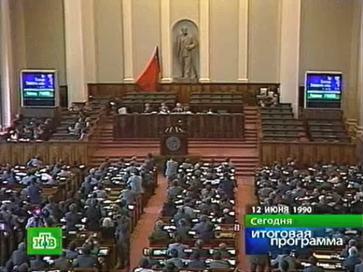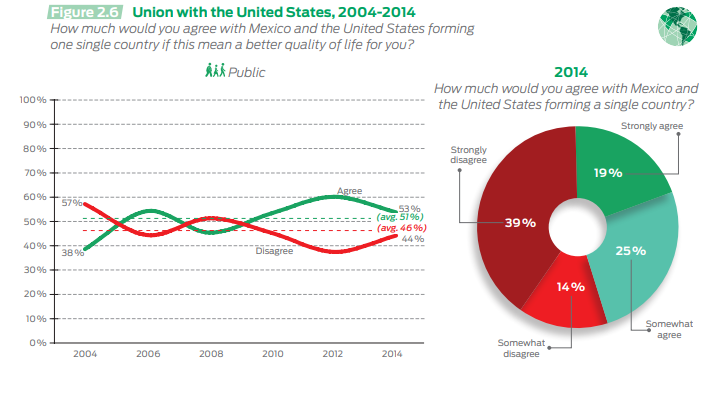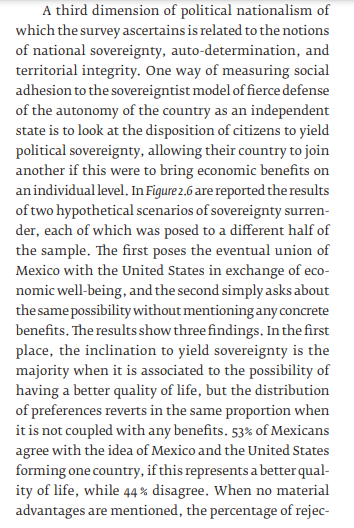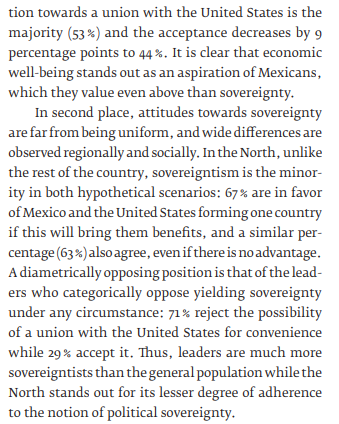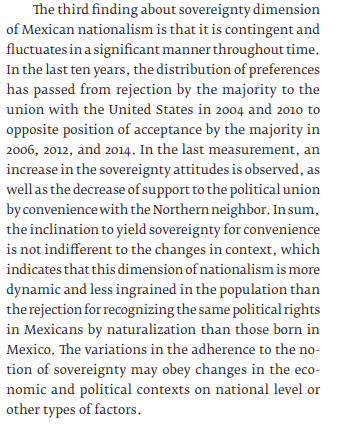I got access to
CIDE's 10 years of polling data about Mexican societal attitudes recently, which is a true treasure drove. To explain what their project is:
Mexico, the Americas and the World is a research project of the International Studies Division of the Center for Economic Research and Teaching (CIDE), which studies the social attitudes and political culture of Mexicans regarding foreign policy and international relations. The project began in 2004 and consists of a biennial survey, based on representative samples of the national population and groups of leaders. It is a rigorous instrument to collect original and reliable information on the opinions, attitudes, evaluations, beliefs, interests, aspirations, feelings, social values and behavior of citizens regarding international issues.
The central objective of the study is to provide empirical, objective and rigorous information in a strategic area for Mexico and Latin America, where independent and reliable data are scarce and scattered. Precise knowledge of citizens' perceptions of how the world works and how it should work is an indispensable instrument for evaluating the degree of legitimacy of the institutions, norms and actors of the international system and the government's performance in matters of foreign policy. Therefore, this information provides inputs for academic research and decision-making by actors and organizations (both public and private).
The greatest strength of Mexico, the Americas and the World is that it is a key instrument for strategic decision-making, the formulation of democratic and effective public policies in the international arena, the government management and conduct of foreign relations, the communication and transnational social bonding, bilateral, regional and international cooperation and scientific, educational and cultural research.
It's not merely a magazine poll,
CIDE is one of the top think tanks in Mexico, and is highly rated in its field globally. Here's what I found:
The initial link in this post takes one to the entire collection, which will enable one to dig through the entire Spanish language collection. This graph, and the following text citation,
comes from the English language review paper they did covering the data in broad strokes, with context, etc. With that said, here's part of the reports finding:

